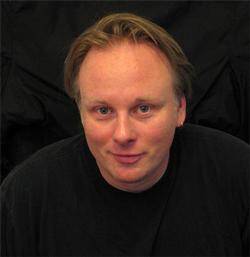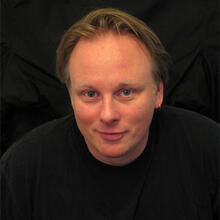‘Amazon is in the vanguard of where technology wants to take the modern office: more nimble and more productive, but harsher and less forgiving,” said a report in The New York Times, on Aug. 15.
It was difficult to read The Times’s recent investigation of Amazon’s workplace culture and not be reminded of Thomas Hobbes’ description of mankind’s state of nature. “Nasty, brutish, and short” didn’t seem all that different from the reality of many workers at the online retail giant.
In the controversial piece, details emerged from current and former employees about Amazon’s “purposeful Darwinism,” in which practices like offering employees official channels for giving “secret feedback to one another’s bosses” is encouraged. One former employee said he had seen nearly everyone he worked with cry at their desks. An oft-repeated phrase at headquarters was that “Amazon is where overachievers go to feel bad about themselves.”
Sadly, this troubling characterization didn’t surprise me. In the age of Big Data, metrics and efficiency have become the lifeblood of our technocracy. Amazon’s culture is simply the evolutionary result of this 21st-century ethos.
“Data creates a lot of clarity around decision-making,” said one Amazon division head; it is “incredibly liberating.” I have no doubt that it has been liberating but it is also limiting in ways we do not yet fully comprehend.
In the information age, we have embraced the language and priorities of technological intelligence to the exclusion of more visceral and emotional ways of understanding human existence. Remember when the world spun on the axis of two polarities: Marxism versus capitalism? Today, the Marxist view of mankind through an economic lens has been replaced with the meritocratic vision of Technological Man. This vision rewards particular skills and I.Q. and can be hugely profitable. In the abstract it is immensely seductive. In reality it can reduce human beings to abstractions with breathtaking ease.
That reality was put in sharp relief last November in a private talk I attended given by Eric Schmidt, executive chairman of Google, hosted by Justice Ruth Bader Ginsburg at the U.S. Supreme Court. The event was sponsored by the Salzburg Global Seminar, which has worked for 70 years as a catalyst for engagement around the world on issues of education, health, environment, economics, peace etc. The subject of the talk was privacy, free speech and technology; the message that came across, however, resonated in ways that I’m sure were unintended.
In a room filled with highly accomplished lawyers who were deeply concerned with issues of social justice, Mr. Schmidt seemed blithely optimistic. He possessed a bourgeois confidence that the harsh realities of the world beyond that august chamber would be solved by the smart, “crazy” and “really, really arrogant” engineers he works with. Our challenge is to continue to “build your culture around understanding these entrepreneurs.”
“We’re now in a knowledge view of the world,” he said. “Most of the problems in the world could be solved by more access to information and more critical thinking.” For those who are not gifted in that department, Schmidt said, “the technology that I’m describing improves the dumb people’s opportunities, too.” He closed by saying that he hoped he had given us “a sense that we’re busy building a future that’s even better than the good future we have right now.”
I was astonished at his utter faith in technological progress. If Pope Francis viewed the church as a field hospital offering healing after a battle, Schmidt clearly viewed the world as a series of problems to be solved from a software engineer’s brain. I wondered what metrics could be applied to the compassion, mercy and empathy Francis spoke of? What sort of “intelligence” was that? And would I really want to live in a world without it?
Jobs, Gates, Bezos and Zuckerberg are the 21st century’s Edison, Bell, Carnegie and Morgan. They are inventors and digital industrialists who have changed the modern world. Through their innovations we have rediscovered fire. As we continue to navigate our way through this era of profound change, the critical task will be to ensure that this fire is used to warm and illuminate and not to burn and destroy. Making those distinctions however will require qualities that can’t be measured on an I.Q. test.








